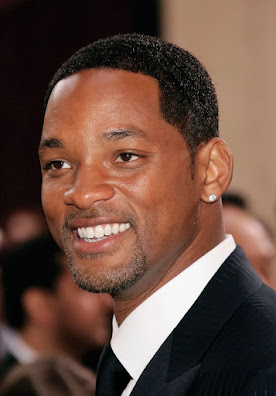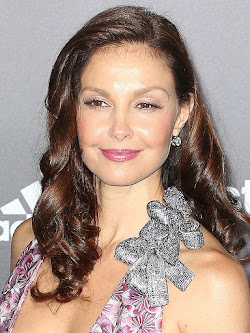Box Office Performance
While "Once Upon a Time in the West" is now considered a classic, its initial box office performance was somewhat modest. The film had a production budget of around $5 million, a significant sum for a Western at the time. However, upon its release, the film grossed approximately $5.5 million in the United States, which, though not a blockbuster figure, reflected a decent return on investment. It fared better in Europe, particularly in Italy and France, where Leone's work was highly appreciated.
Over time, as the film garnered critical acclaim and developed a strong cult following, its financial success grew, eventually leading to substantial earnings from re-releases, home video sales, and other forms of distribution. Today, "Once Upon a Time in the West" is recognized not just as a financial success but as a cultural milestone in film history.
Sergio Leone's Vision
"Once Upon a Time in the West" was the first film in what would become known as Leone's "Once Upon a Time" trilogy, followed by "Duck, You Sucker!" (also known as "A Fistful of Dynamite") and "Once Upon a Time in America." Leone's intent with "Once Upon a Time in the West" was to create a cinematic epic that would be a tribute to the American Western genre while simultaneously deconstructing it.
Leone's vision was deeply influenced by the Hollywood Westerns of directors like John Ford, but he infused his film with a distinctly European sensibility. The film is characterized by its slow pacing, minimalist dialogue, and long, tension-filled sequences that build to explosive climaxes. This approach allowed Leone to explore themes of mortality, revenge, and the relentless march of progress in a rapidly changing world.
Cinematography and Music: A Perfect Marriage
One of the most striking aspects of "Once Upon a Time in the West" is its breathtaking cinematography, handled by Italian cinematographer Tonino Delli Colli. The film's visual style is defined by wide shots of expansive landscapes, close-ups that capture every nuance of the actors' performances, and a deliberate use of light and shadow to create mood and tension. The vast, dusty plains of the American West are rendered in a way that is both beautiful and foreboding, highlighting the harshness of the environment and the isolation of its inhabitants.
The film's score, composed by Ennio Morricone, is equally iconic. Morricone, who had collaborated with Leone on the "Dollars Trilogy," delivered a haunting and evocative soundtrack that has since become one of the most famous in film history. Each major character is associated with a distinct musical theme, and these motifs are woven throughout the film to heighten the emotional impact of key scenes. The music, combined with Leone's masterful direction, creates a cinematic experience that is both epic and intimate.
The Characters and Performances
"Once Upon a Time in the West" features some of the most memorable characters in the Western genre.
Harmonica (Charles Bronson): A mysterious gunslinger with a haunting past, Harmonica is a man of few words but great skill. Bronson's stoic performance brings a quiet intensity to the character, making him both enigmatic and compelling.
Frank (Henry Fonda): In a bold casting choice, Leone cast Henry Fonda, known for his roles as a noble hero, as the film's primary antagonist. Frank is a ruthless, cold-blooded killer who embodies the darker side of the American West. Fonda's chilling performance is a stark departure from his previous roles, and it remains one of the most powerful portrayals of villainy in cinema.
Jill McBain (Claudia Cardinale): Jill is the heart of the film, a woman caught in the crossfire of the violent world around her. Cardinale's performance is both strong and vulnerable, making Jill a complex and sympathetic character who drives much of the film's emotional weight.
Cheyenne (Jason Robards): Cheyenne is an outlaw with a rough exterior but a sense of honor. Robards brings warmth and humor to the role, providing a counterbalance to the film's darker elements.
The interplay between these characters, set against the backdrop of a West in transition, is central to the film's narrative. Their stories are intertwined with themes of revenge, survival, and the inexorable advance of civilization, as represented by the coming of the railroad.
Critical Acclaim and Audience Reception
Although initial reviews of "Once Upon a Time in the West" were mixed, with some critics finding the film's slow pace challenging, it has since been reappraised as a masterpiece. Today, it is widely regarded as one of the greatest films ever made, and it is frequently cited in lists of the best Westerns of all time.
Audiences, too, have come to appreciate the film's unique style and depth. The slow, deliberate pacing that some found off-putting upon release is now recognized as one of the film's strengths, allowing Leone to build tension and develop his characters in a way that is rarely seen in more conventional Westerns.
The film's influence on later works is profound. Directors such as Quentin Tarantino, Martin Scorsese, and Christopher Nolan have cited "Once Upon a Time in the West" as a major influence on their own filmmaking. Its impact can be seen in everything from the pacing and visual style of modern blockbusters to the use of music in film.
Conclusion
"Once Upon a Time in the West" is more than just a Western; it is a meditation on the end of an era, the rise of industrialization, and the human cost of progress. Its characters, performances, and visual style have left an indelible mark on the world of cinema, and its influence continues to be felt to this day. As we look back on this 1968 classic, it is clear that Sergio Leone achieved his goal of creating a film that would stand the test of time. "Once Upon a Time in the West" remains a towering achievement in the Western genre, a film that is as epic in scope as it is rich in emotional and thematic depth.










.jpg)









